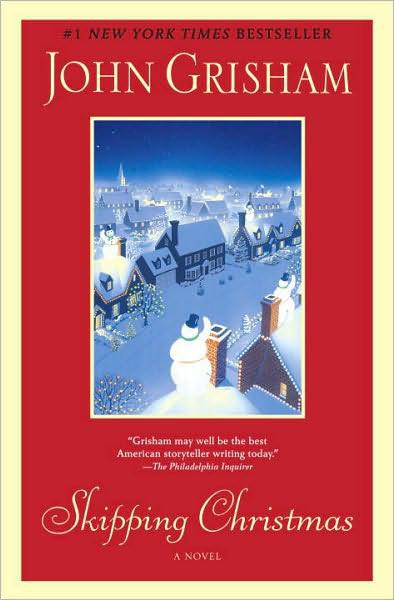
Skipping Christmas PDF
Preview Skipping Christmas
Imagine a year without Christmas. No crowded malls, no corny office parties, no fruitcakes, no unwanted presents. That’s just what Luther and Nora Krank have in mind when they decide that, just this once, they’ll skip the holiday altogether. Theirs will be the only house on Hemlock Street without a rooftop Frosty, they won’t be hosting their annual Christmas Eve bash, they aren’t even going to have a tree. They won’t need one, because come December 25 they’re setting sail on a Caribbean cruise. But as this weary couple is about to discover, skipping Christmas brings enormous consequences—and isn’t half as easy as they’d imagined.
A classic tale for modern times from a beloved storyteller, John Grisham’s Skipping Christmas offers a hilarious look at the chaos and frenzy that have become part of our holiday tradition.
Amazon.com ReviewJohn Grisham turns a satirical eye on the overblown ritual of the festive holiday season, and the result is Skipping Christmas, a modest but funny novel about the tyranny of December 25. Grisham's story revolves around a typical middle-aged American couple, Luther and Nora Krank. On the first Sunday after Thanksgiving they wave their daughter Blair off to Peru to work for the Peace Corps, and they suddenly realize that "for the first time in her young and sheltered life Blair would spend Christmas away from home."
Luther Krank sees his daughter's Christmas absence as an opportunity. He estimates that "a year earlier, the Luther Krank family had spent $6,100 on Christmas," and have "precious little to show for it." So he makes an executive decision, telling his wife, friends, and neighbors that "we won't do Christmas." Instead, Luther books a 10-day Caribbean cruise. But things start to turn nasty when horrified neighbors get wind of the Krank's subversive scheme and besiege the couple with questions about their decision.
Grisham builds up a funny but increasingly terrifying picture of how this tight-knit community turns on the Kranks, who find themselves under increasing pressure to conform. As the tension mounts, readers may wonder whether they will manage to board their plane on Christmas day. Skipping Christmas is Grisham-lite, with none of the serious action or drama of his legal thrillers, but a funny poke at the craziness of Christmas. --Jerry Brotton, Amazon.co.uk
From Publishers WeeklyFor all its clever curmudgeonly edge and minor charms, no way does this Christmas yarn from Grisham rank with A Christmas Carol, as the publisher claims. Nor does it rank with Grisham's own best work. The premise is terrific, as you'd expect from Grisham. Fed up with the commercial aspects of Christmas, particularly all the money spent, and alone for the holiday for the first time in decades (their daughter has just joined the Peace Corps), grumpy Luther Krank and his sweeter wife, Nora, decide to skip Christmas this year to forgo the gifts, the tree, the decorations, the cards, the parties and to spend the dollars saved on a 10-day Caribbean cruise. But as clever as this setup is, its elaboration is ho-hum. There's a good reason why nearly all classic Christmas tales rely on an element of fantasy, for, literarily at least, Christmas is a time of miracles. Grisham sticks to the mundane, however, and his story lacks magic for that. He does a smartly entertaining job of satirizing the usual Christmas frenzy, as Luther and Nora resist entreaties from various charities as well as increasing pressure from their neighbors (all sharply drawn, recognizable members of the generic all-American burb, the book's setting) to do up their house in the traditional way, including installing the giant Frosty that this year adorns the roof of every home on the block except theirs. And when something happens that prompts the Kranks to jump back into Christmas at the last minute, Grisham does slip in a celebration of the real spirit of Christmas, to the point of perhaps squeezing a tear or two from his most sentimental readers (even if he comes uncomfortably close to It's a Wonderful Life to do so). But it's too little, too late. The misanthropy in this short novel makes a good antidote to the more cloying Christmas tales, and the book is fun to read. To compare it to Dickens, however, is...humbug. 1.5-million first printing.
Copyright 2001 Cahners Business Information, Inc.
